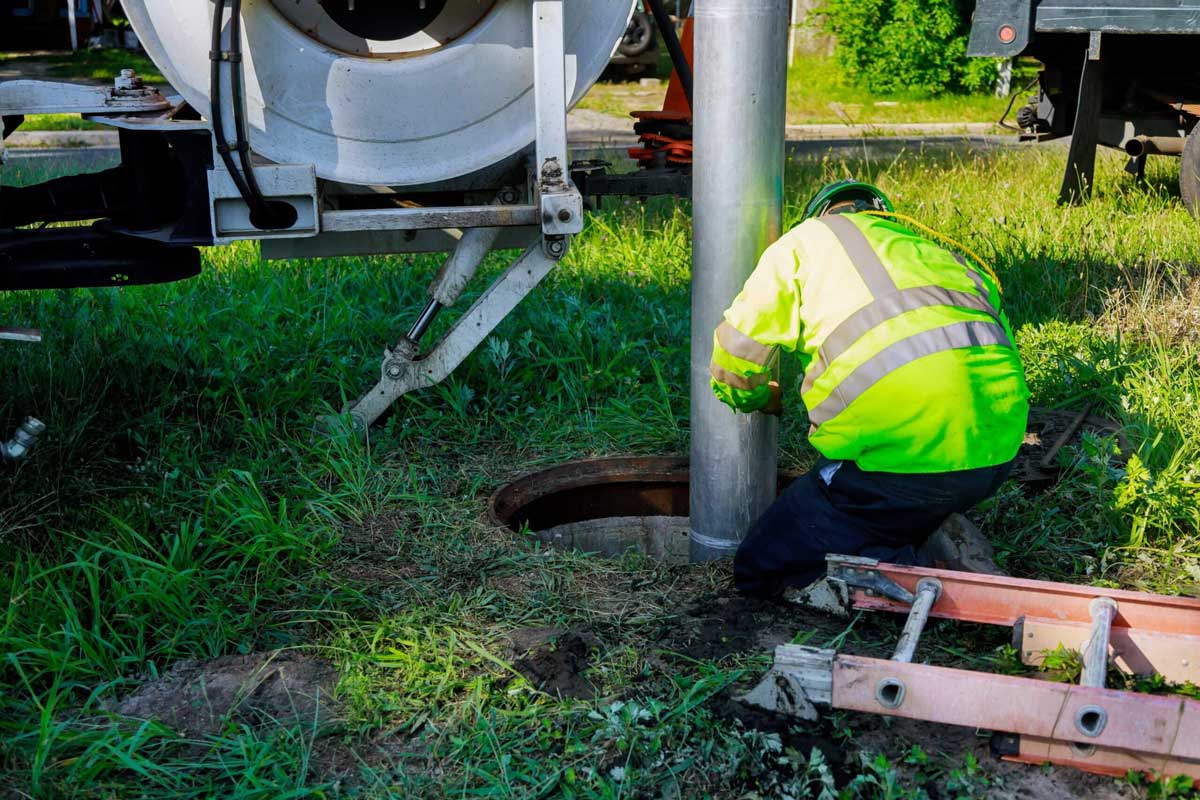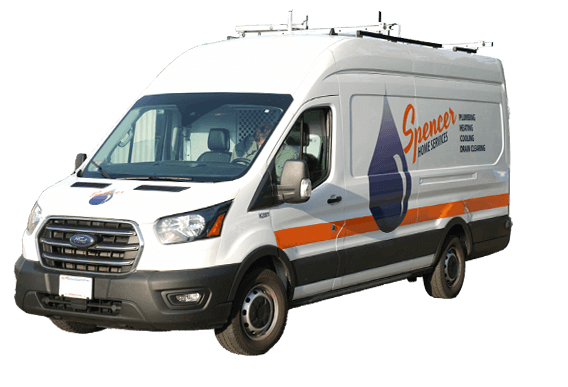As homeowners, you must understand our different options when managing your wastewater. So this article helps you understand the comparison of septic vs. sewer systems and decide which is best for your home.
Septic systems treat your wastewater on-site, whereas sewer systems direct it to a centralized treatment plant. Both options have unique benefits, which will be discussed throughout the write-up. The goal is to give you the necessary knowledge to make the best choice for your home and lifestyle!
DIFFERENTIATION BETWEEN SEPTIC VS. SEWER SYSTEMS
The distinction between septic and sewer systems is self-evident. A septic system on your property handles wastewater, and the homeowner is responsible for the cost of installing and maintaining the system. On the other hand, a sewer system directs waste water to a municipal facility run by the local government and funded by taxes and fees.
TYPES OF SEPTIC SYSTEM
The types of septic systems can vary widely. Here are the most common types of septic systems:
CONVENTIONAL SEPTIC SYSTEM
Being the most straightforward type, conventional septic systems consist of a septic tank and a trench called a drain field to treat the wastewater. They are typically installed at small businesses or single-family homes. It is a design that has been used for decades. They are usually large in overall footprint.
CHAMBER SYSTEM
Chamber systems are another type of septic system which are gravel-less drain fields made from recycled material. These systems consist of a series of connected chambers.
AEROBIC SEPTIC SYSTEM
Aerobic septic systems use the same processes as municipal sewage plants but on a smaller scale. They contain oxygen that provides additional treatment for nutrients in the effluent. They also reduce pathogen levels.
RECIRCULATING SYSTEM
Recirculating sand filter septic systems are suitable for high water tables and provide a high level of treatment for nutrients.
MOUND SEPTIC SYSTEM
A mound system is ideal for areas with shallow soil depth or bedrock.
PROS OF A SEPTIC SYSTEM
Comparing septic vs. sewer systems, septic ones are environmentally friendly. They require less infrastructure and energy than treatment plants and rely on chemicals to remove wastewater. They are also essential to conserve your local water supply. Besides, they replenish groundwater and nourish plants and trees. They also allow you to live independently, far from the hustle and bustle of the city.
It is more cost-efficient to install a septic system than to join municipal sewer lines to your property. Since they have no connection with the municipal sewer network, there are no monthly water bills to deal with wastewater on your property.
CONS OF A SEPTIC SYSTEM
One drawback of septic systems is that they may require you to change your habits. They can treat a limited volume of waste each day. You may need to adjust your bathroom and laundry habits to avoid overloading your system. Furthermore, it would help if you were careful of what you put down your drains.
Food scraps or cooking oils can clog septic pipes. Strong chemicals can kill the bacteria that treat wastewater in your system. Another disadvantage of septic systems is maintenance costs. The pumping-out of septic tanks every three to five years is your duty. Regular maintenance maximizes the lifespan of a septic system, but individual parts do not last forever.
As the system components deteriorate, sewage backups, foul smells, pooling water, and slow drains are possible. You are responsible for the expense of replacing damaged parts, including pipes, lids, tanks, and pumps. You must also have ample space for installing a septic system. It is important that you don’t drive vehicles, build pools or pile snow in that area.
TYPES OF A SEWER SYSTEM
There are a total of three types of sewer systems: sanitary, storm, and combined sewers.
SANITARY SEWER
A sanitary sewer’s primary function is transporting waste from homes to wastewater treatment plants. These systems are designed to handle human waste and readily biodegradable manufactured solids like toilet paper and tissues. Many miles of piping, maintenance holes, and pumping stations are required to move waste through the system.
STORM SEWER SYSTEM
Storm sewers, also known as surface or runoff sewers, collect and transport rainwater, snowmelt, and irrigation runoff into storm drains in parking lots, streets, and gutters. These drains are linked by a network of underground pipes that transport the water directly to rivers, lakes, and other bodies of water without treatment at a treatment plant.
COMBINED SEWERS
Combined sewers are a hybrid of sanitary sewer and storm sewer systems. They are rarely used nowadays due to the potential health risks to people and the environment.
PROS OF SEWER SYSTEMS
One of the sewer system’s significant advantages is improving the quality of life. They provide a healthy and appropriate way to manage wastewater. Also, they help preserve the natural environment and reduce the risks of environmental problems. Tertiary treated effluent at the treatment plant is reused for agricultural purposes.
Another advantage is that the sewer system is connected to a centralized treatment plant. So you can maintain the system as the government handles it. They also reduce the financial and social consequences resulting from the direct damage to properties caused by flooding.
CONS OF SEWER SYSTEMS
The major disadvantages of sewer systems include the cost reliance on public systems as well as the risk associated with them. Sewer systems need to be connected to massive networks of public sewer pipes. Repairs and maintenance to these systems become more and more frequent as the density of the population increases.
Sewer systems can get risky as well, mainly due to the potential for leaks and environmental contamination. Sewer leaks can contaminate water sources, making them unsafe for humans, animals, and plants to use. It can also increase the risk of disease, alter the local environment, and cause flooding.
FACTORS TO CONSIDER: SEPTIC VS. SEWER
Consider a few things while deciding what to choose between a septic vs. a sewer system. The most crucial factor is the size and location of your property. Choose a septic system if you have a large property in a rural area.
Septic system allows more flexibility in terms of places and design. However, a sewer system is the only option if you live in an urban area. Another important factor is local regulations and zoning laws. You must check with your local government to see what kind of systems are allowed in your area and what permits are required.
Finally, consider your property’s potential for future expansion or development. If you’re planning to build a new structure or add to your current home, you must ensure that your chosen system can accommodate that growth.
CONCLUSION
Choosing a septic vs. sewer system can be challenging for homeowners, but it is essential. By comprehending the differences between the two systems, weighing the pros and cons, and considering factors such as property size and location, local regulations & zoning laws, and potential for future expansion or development, homeowners can make an informed decision that best suits their needs and circumstances.
Remember that it’s always a good idea to contact the professionals at Spencer Home Services to determine the best option for your property. Ultimately, whether you choose a septic or sewer system, it’s essential to ensure that your wastewater is adequately treated to benefit your household and the environment. Check out our Google reviews to see what your neighbors are saying about Spencer Home Services!


